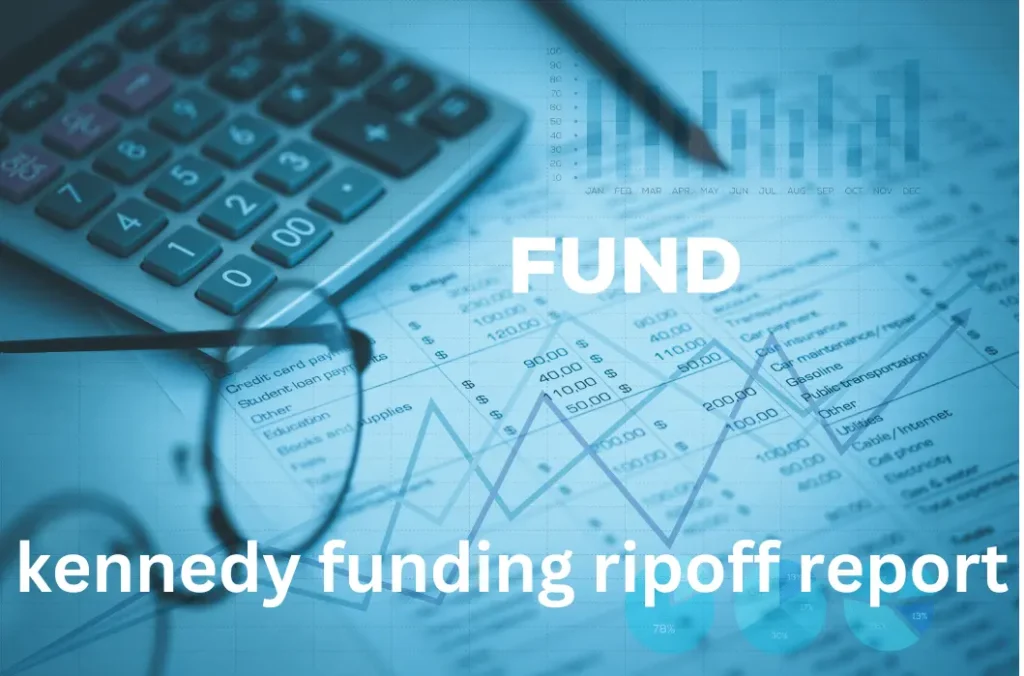Introduction
In the world of private lending, Kennedy Funding Ripoff Report has gained attention—and not always for the best reasons. Numerous consumer reports label this lender with terms like “scam” and “ripoff,” sparking concern for those seeking alternative funding sources. This guide explores Kennedy Funding’s practices, the complaints leveled against them, and what potential borrowers should know to make safe and informed decisions.
What is Kennedy Funding?
Kennedy Funding Ripoff Report is a private lender specializing in high-value loans, typically secured by real estate. They market themselves as an alternative to traditional banking, providing loans quickly for projects such as commercial real estate, construction, and development. While their services can be attractive to those who face difficulties with conventional banks, some clients have raised serious concerns about their business practices.
Understanding the Ripoff Reports
Ripoff Reports are consumer-driven reviews often highlighting poor business practices. For Kennedy Funding, these reports focus on issues like excessive fees, misleading terms, and unfavorable loan conditions. Investigating these reports can provide a fuller picture of why many customers label the company as unreliable or risky. Also read Ontpresscom Fresh Updates
Why Are These Reports Important?
Ripoff Reports serve as an important warning for potential clients by sharing real experiences that help uncover patterns. With Kennedy Funding, these reviews frequently warn about aggressive fees, opaque contract terms, and unresponsive customer service.
Key Complaints Against Kennedy Funding
High Interest Rates
Kennedy Funding often charges significantly higher interest rates than traditional banks, putting borrowers at risk of unaffordable payments. For many, these rates become financially burdensome.

Hidden Fees and Charges
Clients frequently report unexpected fees that can add thousands to their loan amount, including:
- Application Fees: Charged upfront before loan approval.
- Origination Fees: A percentage of the loan itself, often higher than average.
- Prepayment Penalties: Fees if borrowers attempt to pay off the loan early.
Complicated Loan Terms
The fine print in Kennedy Funding’s contracts often includes terms that are difficult for borrowers to understand. Some clients report feeling misled, with vague clauses that lead to surprises down the line.
Customer Service Issues
Several consumers have cited difficulties with customer service, such as delayed responses or refusal to address concerns post-funding.
Is Kennedy Funding a Reliable Lender?
To assess the reliability of Kennedy Funding, it’s essential to weigh both consumer feedback and the company’s legal history. Kennedy Funding Ripoff Report has faced lawsuits concerning its practices, adding to concerns about its credibility. While some clients report satisfactory experiences, the number of complaints raises questions about the overall reliability of the lender.
Exploring Alternatives to Kennedy Funding
If you’re hesitant about Kennedy Funding, there are several alternative financing options that may better suit your needs:
- Traditional Banks and Credit Unions: These typically offer lower interest rates and clearer terms than private lenders.
- Peer-to-Peer Lending Platforms: Often more transparent, peer-to-peer platforms may be a safer choice for borrowers with less-than-perfect credit.
- Alternative Private Lenders: Research reputable private lenders with positive feedback and a history of reliable service. Be sure to compare terms carefully.
How to Protect Yourself from Private Lending Scams
When dealing with any private lender, including Kennedy Funding, here are key ways to protect yourself:
- Do Thorough Research: Look for reviews, ratings, and any past complaints to get a sense of the lender’s track record.
- Request Full Transparency: Ask for a breakdown of fees, interest rates, and any penalties in writing before signing.
- Consult a Financial Advisor: An advisor can help you review loan terms and ensure you understand the risks involved.
- Know Your Rights: Familiarize yourself with consumer protection laws to know what you’re entitled to in case of fraud or misrepresentation.
Top Red Flags to Watch Out For
Be cautious if you encounter any of these warning signs with a lender:
- Pressure to Act Quickly: Scammers often rush clients to sign contracts without reading.
- Vague Terms and High Fees: If the lender refuses to clarify fees or contract terms, it’s a significant red flag.
- Excessive Upfront Fees: Legitimate lenders typically do not require excessive upfront fees before the loan process is underway.
Real Consumer Experiences
Case Study 1: Unexpected Charges
One consumer described being charged over $10,000 in unexpected fees that weren’t disclosed upfront. This pushed the total loan cost far beyond what they had initially budgeted.
Case Study 2: Interest Rate Surprises
Another client complained that their interest rate was much higher than what was initially quoted. This unexpected rate increase resulted in unaffordable monthly payments, causing financial strain.
While these experiences highlight potential issues, some clients have had positive interactions. Those who carefully reviewed their contracts and were prepared for higher fees reported fewer issues.
FAQs
What makes Kennedy Funding different from traditional banks?
Kennedy Funding offers faster, high-value loans, often to those who may not qualify with traditional banks. However, these loans come with higher rates and fees.
Are the Ripoff Reports trustworthy?
While individual reports should be viewed critically, patterns across multiple complaints can reveal genuine concerns.
Can I refinance a Kennedy Funding loan if it’s too costly?
Yes, some borrowers choose to refinance with a more affordable lender. However, this may involve additional fees and penalties.
Conclusion
When considering a loan with Kennedy Funding Ripoff Report or any private lender, it’s crucial to understand the full scope of their practices and weigh the potential risks. Kennedy Funding’s high fees, complex terms, and negative reviews are clear signs to proceed with caution.
By exploring alternative lenders, doing your research, and consulting a financial professional, you can make a more informed decision that protects your financial future. Always remember: if something feels off, it’s worth reviewing before committing.

